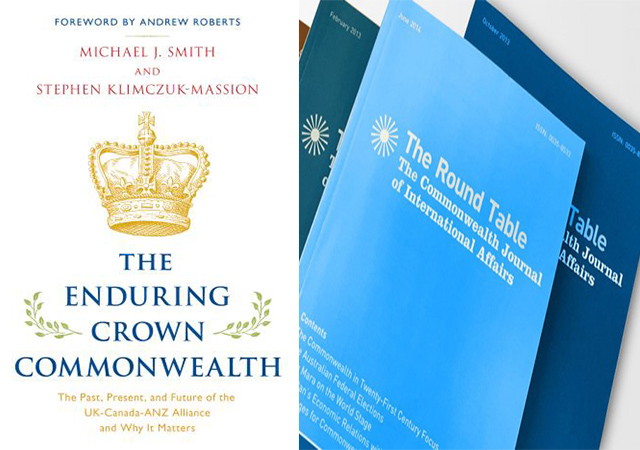
[This is an excerpt from an article in The Round Table: The Commonwealth Journal of International Affairs.]
On Saturday 6 May 2023, the world watched the Coronation of King Charles III in Westminster Abbey. At some 70 years since the last coronation (of his mother Queen Elizabeth II) it was a rare and historic event, full of medieval ritual and modern symbolism. One aspect stood out for Commonwealth watchers: the significant presence of the 56 member nation Commonwealth, which King Charles also now heads, and of the 15 realms of which he remains the Sovereign, whose representatives were given pride of place ahead of other Heads of State and dignitaries.
Will this remain the case at a future coronation of his son and heir Prince William one day in the less distant future? The Canadian authors of The Enduring Crown Commonwealth would answer firmly in the affirmative, at least as it concerns the UK, Canada, Australia and New Zealand – the so called CANZUK ‘alliance’.
A 21st Century coronation
The coronation of King Charles III: An occasion for worldwide celebration
Opinion – The coronation of King Charles III: An Australian perspective
The Coronation and the Commonwealth
This is a useful study of the history of this group of the ‘old’ Commonwealth countries during the reign of Queen Elizabeth II. The authors seek to explain why all these nations kept the Queen as Head of State throughout her reign. This despite efforts along the way to change the status quo and diminish the role of the monarch, most notably in Australia with a failed republican referendum in 1999.
They go into detail on the history of the ties that continue to bind between these cousin nations, and the flexibility of the monarchical system in managing various changes and different developments within them. At the end they argue, ‘whatever its faults, the system has been made to work exceptionally well in practice. There is no need to change it, even if it could be done’ (p. 278).
Ultimately though, there is no escaping this is an assertively monarchist – even Panglossian – tract with its concluding thought: ‘one must hope that in its own particular and meaningful way the senior realms will long outlive the smallness of republican aspirations and realise that they truly have inherited the best possible system in the world’ (p. 278).
Really? CANZUK after all is first and foremost subsumed in the more formal and active Five Eyes intelligence-sharing alliance with the USA, and the authors recognise this. CANZ may operate as a subgroup multilaterally, especially at the United Nations, but the UK and USA have their own priorities as permanent members of the UN Security Council. ANZUS and the more recent AUKUS are other combinations of these partners on security and defence sharing arrangements – but not altogether.
There is no formal CANZUK, even in the Commonwealth itself, where these ‘old’ Commonwealth partners tend to seek to emphasise more their connections and engagement with their immediate regional neighbours. Finally, most of these nations – including the UK – are struggling with further constitutional and governance changes in line with their own national aspirations.
The Enduring Crown Commonwealth – The Past, Present and Future of the UK-Canada-ANZ Alliance and Why it Matters by Michael J. Smith and Stephen Klimczuk-Massion, Lanham, MD, Rowman and Littlefield, 2023.
Matthew E. K. Neuhaus is with the Australian National University, Canberra, Australia. He also reviews The Queen is Dead – The Time Has Come for A Reckoning by Stan Grant, Sydney, NSW (Gadigal Country), Fourth Estate, Harper Collins 2023 for the Round Table Journal.



